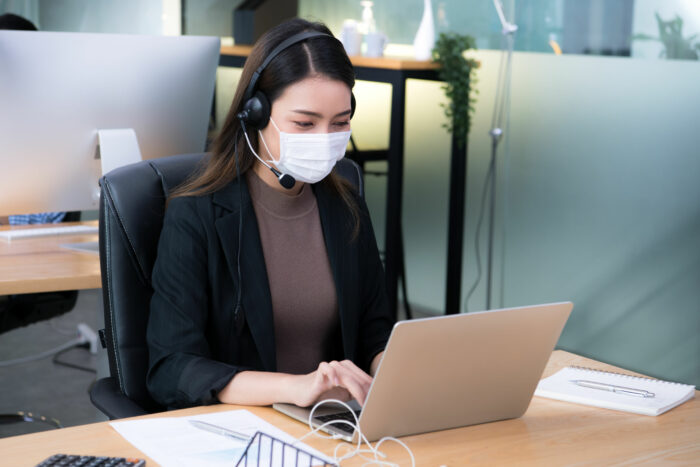Japan aims to bolster economy through wage hikes

To encourage the flow of people from urban to regional areas, the government will raise the national average of minimum wages to ¥1,000 per hour.
Malaysian SMEs told to self-enforce MCO SOPs

Businesses have been told to form their own internal audit committees to ensure compliance to the stricter SOPs under the MCO.
HR Tech Fest Connect 2021: What’s happening on Day 1

Join Asia’s largest HR network to connect, network, discover and share ideas on issues such as HR tech, workforce management and the future of work.
South Korea’s proposed bill protects workers’ rights when companies split

South Korea’s policymakers have proposed a bill that will guarantee employees’ rights when a company is in a spinoff.
Taiwan legislators propose pandemic leave subsidies for parents

The proposal would allow workers who have to take unpaid leave to take care of their children to apply for the subsidies.
Bringing organisations into the future of work

As organisations look to navigate past the pandemic and into an era of a redesigned workforce, what are the key priorities facing HR leaders?
Navigating the future of employer branding

A recent webinar organised by Indeed and HRM Asia examined trends in recruitment, and how organisations can reshape their employer brand.
India allows family members of employees to be vaccinated

Some companies, both in the public and private sector, have already begun lining up its vaccination programme for their staff and family members.
Hong Kong freezes minimum wage amid pandemic woes

The minimum wage in Hong Kong has been frozen for the first time since the Minimum Wage Ordinance came into effect in 2011.
Reskilling and upskilling critical for organisational growth

With workforce transformation continuing to gain pace, organisations have to ensure their employees build new skills and enhance existing ones.
New Zealand increases sick leave from five to 10 days

The New Zealand parliament has passed a bill that will double the number of paid sick leave for employees from five to 10 days.
Private-sector average wages in China rose 5.3% in 2020

The average wages of private-sector urban workers increased by 4,123 yuan (US$640) to 57,727 yuan (US$8,967) annually in 2020, up 5.3% year-on-year.
Addressing key workplace issues with the right technology platform

There are many innovative HR tech solutions available in the market today to help companies make better organisational and business decisions.
WFH-related disabilities or deaths in the Philippines now compensable

Employees in the Philippines who are disabled or pass away due to injury-related incidents when working from home will now be compensated.
Hong Kong’s civil service unions back salary freeze for officials

This comes amid fears that the salaries of civil servants could suffer a cut this year as Hong Kong continues to be impacted by the pandemic.
New Zealand launches national framework to assess workplace DEI

The launch of the national framework to measure workplace diversity, equity and inclusion will help organisations make changes to improve.
More financial firms in Taiwan move to remote working

The move to remote work comes as an increasingly number of COVID-19 infections are reported in Taiwan.
Harnessing technology to build a future-capable workforce

What is the next big shift in HR Tech, that will allow organisations to successfully build future-capable workforces?
Building a future-capable workforce powered by EX and technology

An upcoming webinar from SAP SuccessFactors will provide insights into how HR leaders can successfully pivot to build a future-capable workforce.
Help for working parents as Singapore schools move to home-based learning

As all schools start full home-based learning (HBL) from today, parents who cannot work from home have to find alternative arrangements.
Japan seeks minimum wage hike as soon as possible

The proposals for higher wages could be reflected in the government’s mid-year policy guidelines, and will provide the basis for its fiscal year budget in 2022.
Prolonged pandemic worsens gender gap in Japan

A Cabinet Office panel has concluded that a prolonged pandemic is likely to cause the gender gap to widen, and urged the government to act.
Remote work will democratise opportunities for everyone

Globalization Partners’ Charles Ferguson explains why the rise of the remote workforce may help level the playing field on a global scale.
Singapore raises wage support for F&B sector to 50%

The government will co-pay wages of local employees up to the first S$4,600 of gross monthly wages during the period in which dining-in is prohibited.
Philippine senator seeks to get seniors to be digital-ready for WFH

Senator Grace Poe has urged for educational programmes to help seniors work from home (WFH) instead of leaving their homes during the pandemic.
Paid vaccination leave gains traction among South Korea’s larger firms

CJ Group was the latest to announce a paid vaccination leave for its employees, who can take two days off to receive their COVID-19 vaccinations.
How employers can rethink employee wellbeing and engagement

Organisations are thinking of more inclusive ways of improving the mental health and wellbeing of an increasingly diverse workforce.
Philippine organisation calls for smoke-free workplaces

HealthJustice Philippines has urged the government to enforce smoke-free workplaces in a bid to fight the spread of the COVID-19 virus.
Firms in Japan still not adopting teleworking enough, survey shows

Companies in Miyagi, Osaka, and Hyōgo Prefectures were asked to adopt remote work arrangements to control the spread of COVID-19.
Singapore tightens COVID-19 measures, WFH as default

From May 16 to June 13, the size of group gatherings allowed will be cut from five people to two as employees are told to WFH whenever possible,

